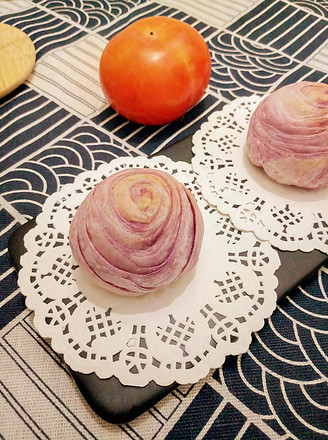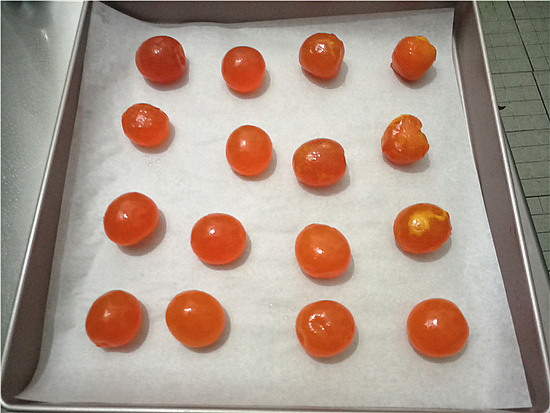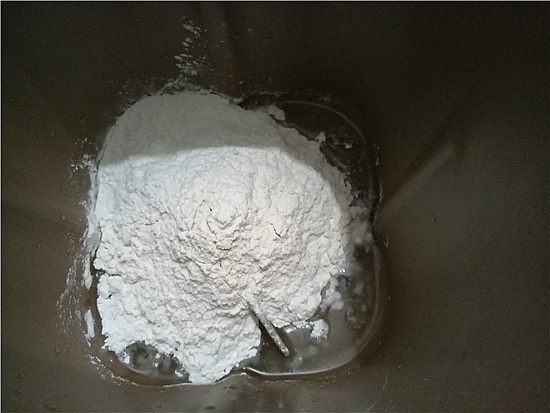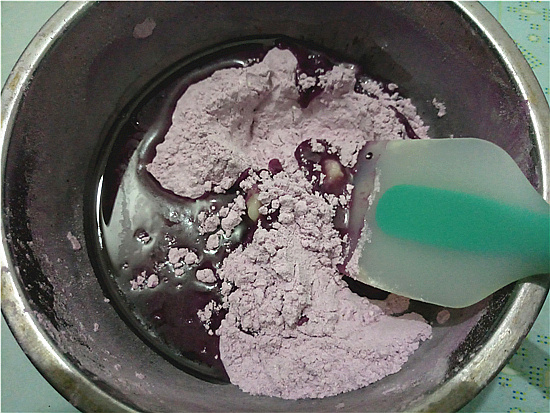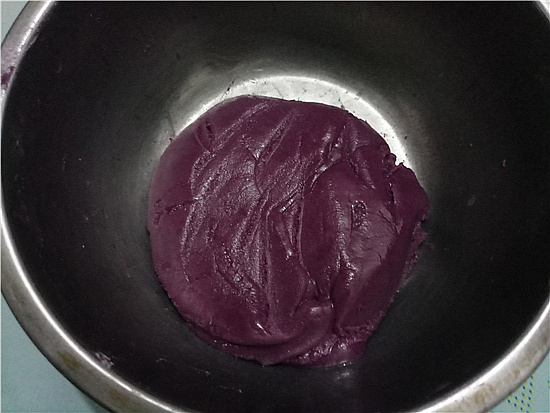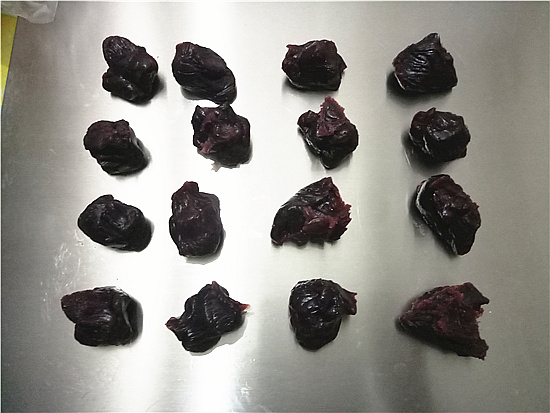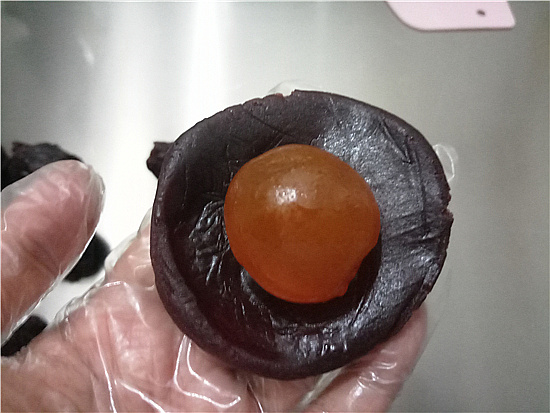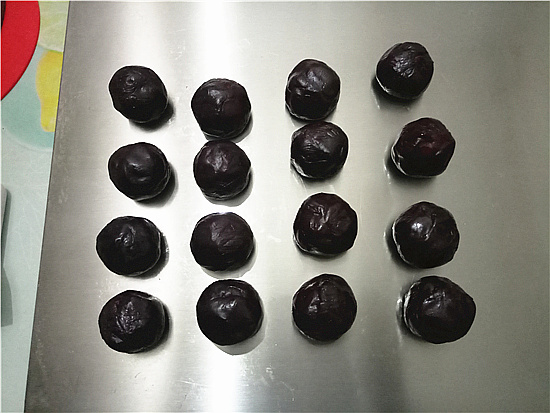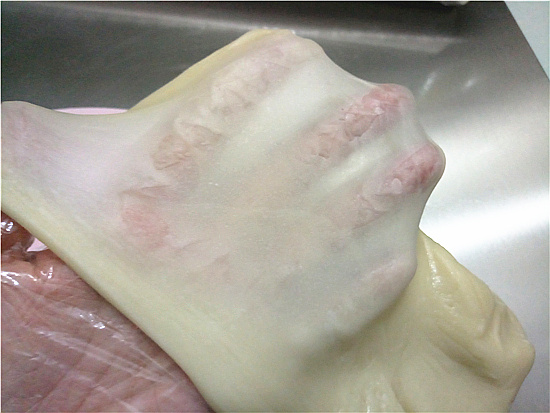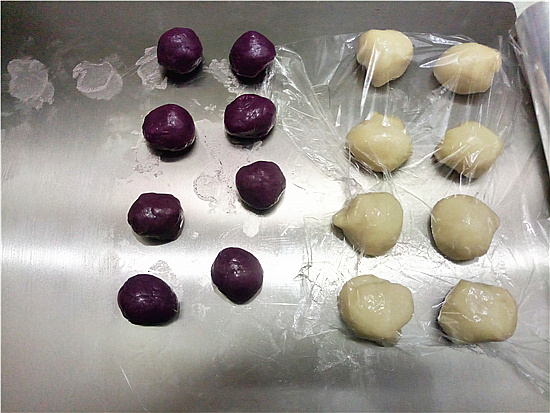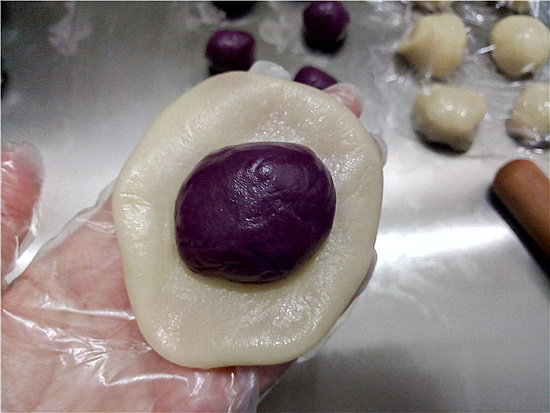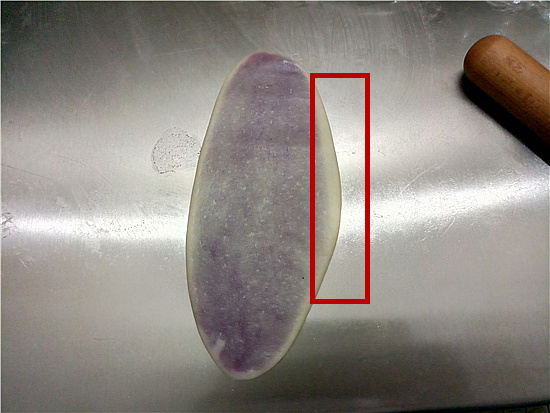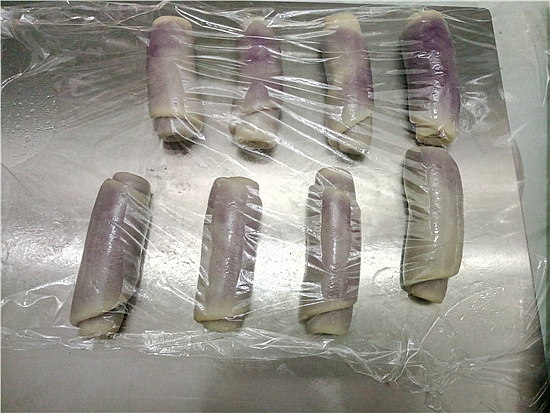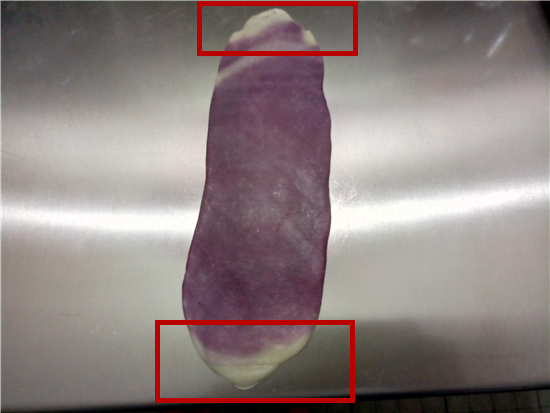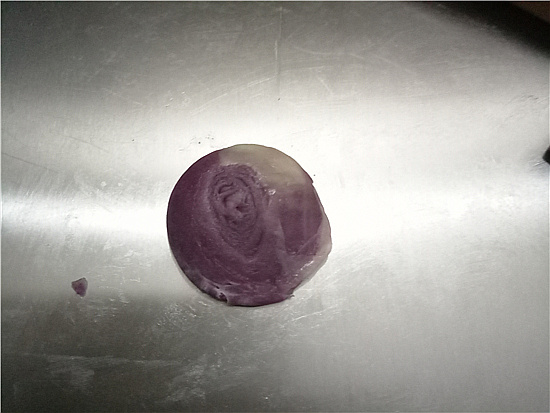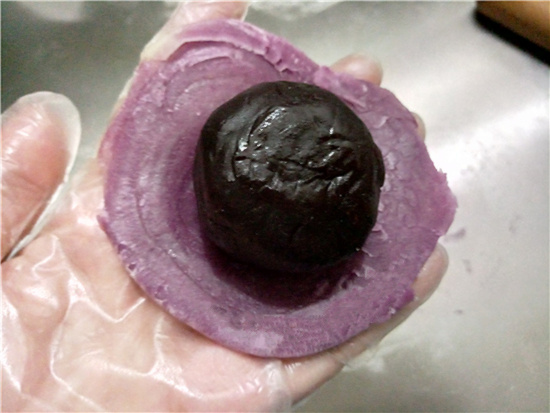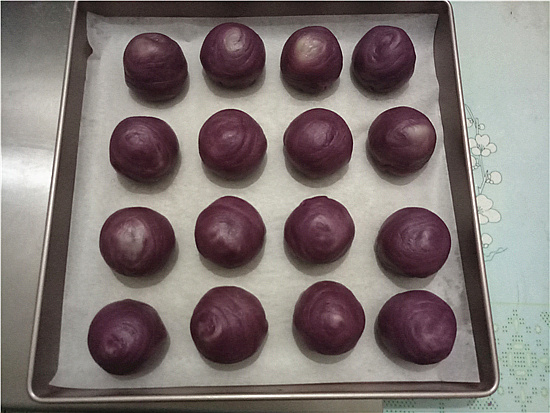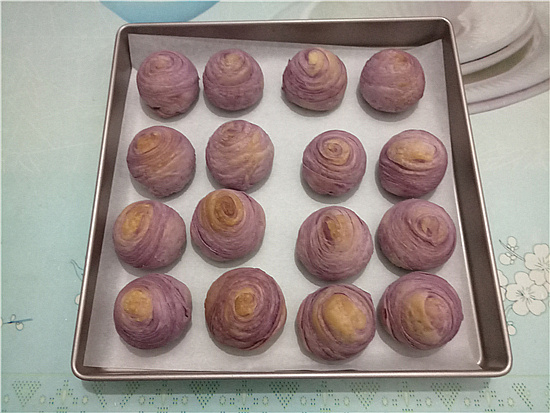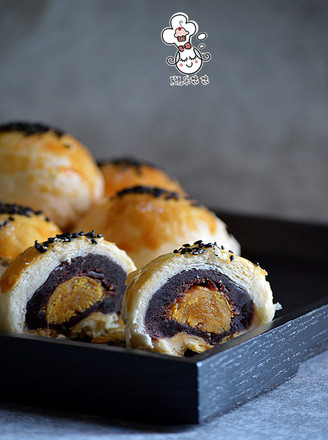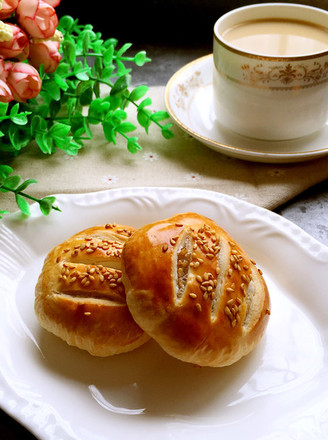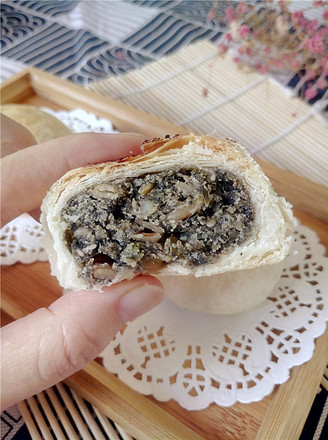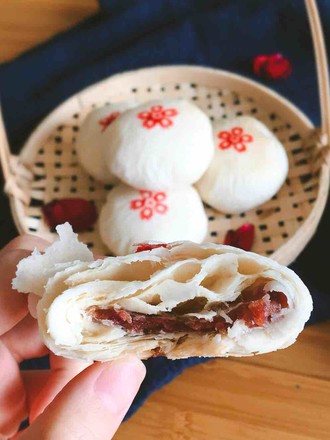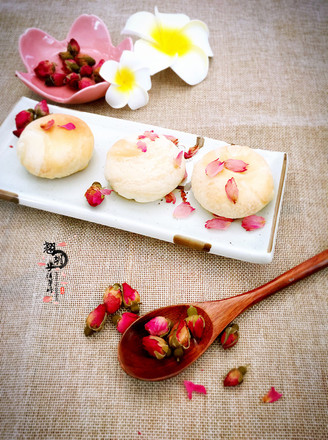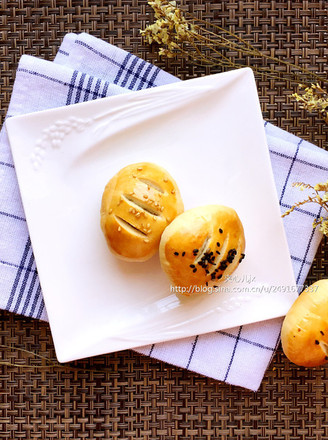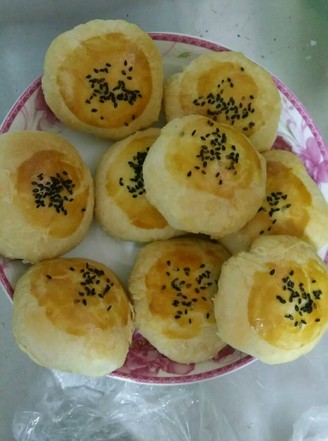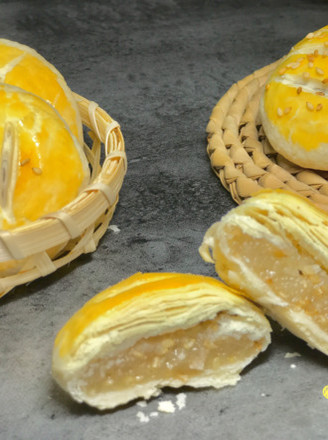Vegetable Oil Colored Egg Yolk Pastry
1.
The salted egg yolks I use are fresh salted duck eggs knocked out, dried, wrapped in plastic wrap, and frozen in the refrigerator. Thaw it a few days in advance, then soak it in corn oil for at least one day. Finally, take it out and use kitchen paper to absorb the excess oil, spray a bit of high white wine above 50 degrees, without baking, directly raw the package. I made two regenerated buns, one cooked bun, and the yolks of the raw buns were softer and not too fishy. As for raw or cooked buns, it is recommended to try them once to find the one that suits your taste.
2.
The water and oily skin materials are put into the bread machine noodle bucket in the order of liquid first and then solid, and the mixing process is complete. If the room temperature is high, take out the bucket during the pause of waking up for a few minutes, put it back after waking up, and then stir. The first problem to pay attention to is to use corn oil, a vegetable oil that has no taste.
3.
During the mixing process of the water and oil skin dough, prepare the shortbread. The second thing to pay attention to is to mix the low-gluten flour and purple potato flour evenly, and then add corn oil, so that the color is even.
4.
Finally, mix into an oily dough, no oil, no drying. Add a little more powder when the oil comes out, or add oil if it's too dry. Cover with plastic wrap and let stand. The third point to pay attention to, oily means that it looks shiny, the dough is soft, but there is no oil oozing out. The dough is too hard to roll back.
5.
Weigh the purple sweet potato filling, about 20-25 grams. Because my salted egg yolk is bigger, I use a 20g ball for the purple potato filling.
6.
Round a ball of purple potato filling, then squeeze it, wrap it with an egg yolk, and slowly push the purple potato filling up with a tiger's mouth until the egg yolk is completely covered.
7.
Wrap all the egg yolks one by one, set them aside, and preferably cover them with plastic wrap.
8.
In the process of wrapping the egg yolk filling, the water and oil skin dough is almost ready, and a beautiful film must be pulled out, like making toast. Then round the water and oil dough dough, cover with plastic wrap and let it relax for 20 minutes. The fourth point of attention, if you want to be clear and clear, you must make a film.
9.
After all the egg yolk filling is done, divide the water oily crust and the shortbread into 16 equal parts. The fifth point of attention, always remember to cover with plastic wrap to prevent the surface from drying out, otherwise it will break easily.
10.
Take a small ball of water and oily skin, round it, squeeze it, and wrap it in a shortbread. The method of wrapping is the same as before. The sixth point of attention is that the mouth must be tightly closed. If you don't close your mouth tightly, it will break easily after a roll.
11.
After the last oily leather bag was finished, the first one was almost slack. Take a small ball, close it down, squeeze it gently, and then use a rolling pin to roll it into a beef tongue shape. The seventh point to note, when rolling the dough, move upward from the middle/to the next position, never roll back and forth. Pay attention to the red frame. There is a white edge here, which means that the shortbread has not been rolled into place, which causes the top of the final yolk shortbread to appear white.
12.
Roll out all the dough one by one, then turn it over and roll it up from bottom to top. Be sure to cover it with plastic wrap. The eighth point of attention, novices must pay attention to, rather than roll too thin, roll too many layers, the back is easy to break.
13.
Roll the skin again, take a roll, close it down, squeeze it gently, roll it into a tongue again, turn it over, and roll it up from bottom to top. Note that the white borders on the top and bottom are the two sides of the first roll.
14.
Once again, roll them all one by one. In fact, in the previous steps, except for the uneven color, there was no cracking. The problem lies in the subsequent operation. When picking up the roll, it was found that it was stuck on the cutting board. After picking it up, it was inevitable that the outermost layer of oil was torn off, causing the subsequent failure to succeed. I haven't figured this out yet. I don't know if it is because the roll is too thin or because of the chopping board.

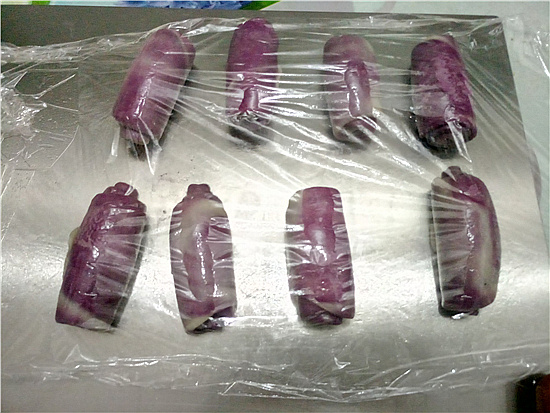
15.
Take a roll, cut into two pieces from the middle with a sharp knife, then put half of it back and cover it with plastic wrap, and the remaining half with the center incision facing up, gently flatten it down, and then roll the dough into a dumpling skin, thick in the middle One point, thin all around. This time it was badly stuck to the chopping board. The side that was attached to the chopping board was more damaged when picked up, but luckily it was wrapped inside. A friend introduced her experience is to put plastic wrap on the bottom, and then half of the top, so that it is not easy to break, try next time.
16.
Turn the rolled dough over, stick the side up on the chopping board, put an egg yolk filling, lightly wrap it like a bun, and pinch the mouth tightly.
17.
All wrapped up. Preheat the oven 180 degrees in advance for 10 minutes, and it will be cold for at least 20 minutes. Put the oven in the lower middle of the oven at 160 degrees for about 30 minutes. The specific time and temperature are adjusted according to your own oven. The last thing to pay attention to is that the oven must be preheated for at least 10 minutes, and the temperature should preferably be 10-20 degrees higher than the official baking temperature.
18.
After baking, take out the baking tray, let it cool, pack it in a box and store it tightly, and finish eating as soon as possible.
Tips:
1. The water and oily skin must come out of the film, so that it is not easy to break and the layers are distinct. For the pastry material, mix the low powder and toner evenly, and then add oil.
2. When rolling the dough, be sure to lighten it, push it to the top, not roll it back and forth. And the thickness should be even, and the layers can be tight when rolled up at the back.
3. Pay attention to the plastic wrap and moisturizing the water, oily skin and pastry materials from slack to the final package.

